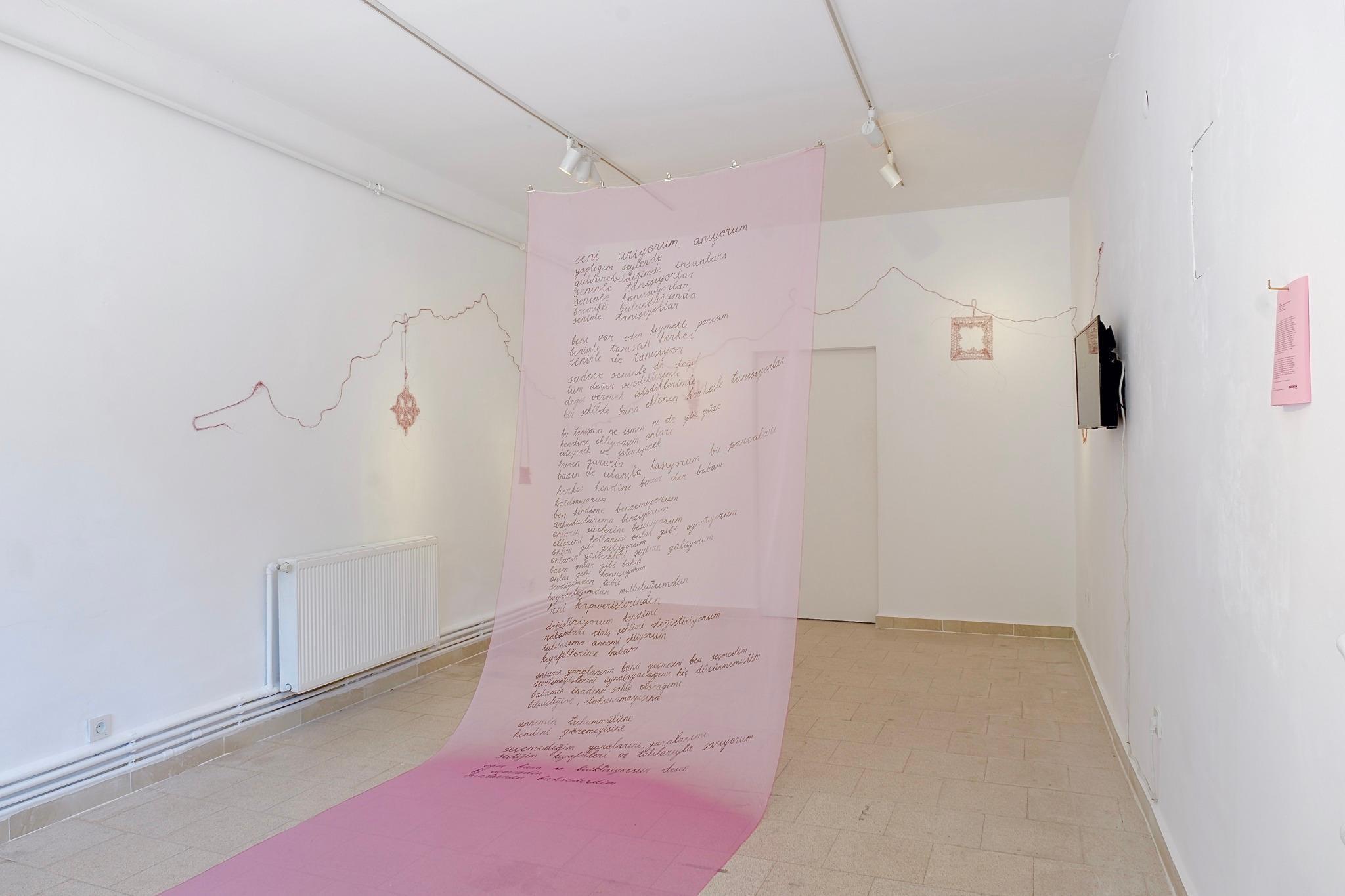
Far from the capital’s usual art districts, a family-owned plumbing shop has been transformed into an artist-run space that has become a shared refuge and a meeting point for emerging artists who often feel sidelined by Ankara’s close-knit art circles.
Founded in 2024 by Emre Eroğlu, who had just returned from Nîmes School of Fine Arts in France, and co-run by multidisciplinary artist Iraz Mursaloğlu, Dükkan’s value lies in its voluntary and open nature.
“Artist-run means it’s truly an independent space we dedicate to art and artists,” Mursaloğlu said. “The people who come here are the ones who truly want to be here. It’s not a gallery, a museum, or a closed collective,” he said.
“Sometimes I even call it shelter, away from the academic and already established art environment,” she added.
The sense of refuge is no coincidence. Both founders came to Dükkan after experiencing isolation in the city. Having grown up in Ankara, Mursaloğlu described how returning after years away left her feeling like an outsider.
“Ankara has very rigid circles formed since childhood. It’s impossible to break into them. I couldn’t find a place in the art scene, I felt immense loneliness,” she explained.
“Our motto became this: If an artist already has other places to exhibit, they are not our target audience. We want to create space for those who don’t have one,” Mursaloğlu said.
For Eroğlu, the journey began in 2023, during a period marked by the aftermath of the Feb. 6 twin quakes that shook Türkiye’s south and devastated his hometown, Hatay.
“I realized I needed a space. My grandfather’s old plumbing shop in Seyranbağları felt like the right place,” he recalled. “It took a lot of convincing including my family, my professors and my friends, but every one eventually supported it.”
By September 2024, Dükkan opened its first exhibition, a photography show called “Zıt Kutuplar” (Polar Opposites) by Yunus Cem Çubukçu. Since then, Dükkan has hosted six exhibitions and three concerts, as well as collaborative workshops that bring strangers across disciplines together.
Their process is deliberately open: public calls are announced online, artists gather for a month-long workshop and the results are presented in collective exhibitions.
“The workshops move fast, with quick exercises and dialogues. Perfectionism often blocks artists, so we create a space where speed and collaboration allow them to experiment more freely,” Eroğlu explained.
He drew inspiration for these workshop from his studies in France.
The space itself shapes much of its character. Situated under an apartment building, with a wide storefront window, Dükkan is constantly visible to passersby. “Sometimes people just stop and watch us work through the glass,” Mursaloğlu said. “They try to understand what is going on inside.”
That element inspired Dükkan Sessions, a series of concerts staged inside the shop, with audiences watching from the street, much like they would on a television screen.
Financially, the project is sustained entirely by personal contributions and resourcefulness.
“Artists who come here know there’s no budget. We reuse materials, one piece of fabric might be used a dozen different ways,” Eroğlu said. “It’s a passion project.”
What the place lacks in funding, it makes up for in spirit, one embodied in a previous exhibit this season by Sude Tatar called “Benimle Tanışan Herkes, Seninle de Tanışıyor” (Everyone That Meets Me, Meets You Too).
“Everyone leaves something behind, and the next person creates from it. That’s what Dükkan is about,” Mursaloğlu highlighted.
“We exchange ideas, learn from one another. Sometimes I guide others, but I learn just as much from them. That’s the real value of this place,” she added.
As Dükkan prepares for the upcoming season, its founders remain committed to keeping the door open — literally and figuratively — for those who need it most.